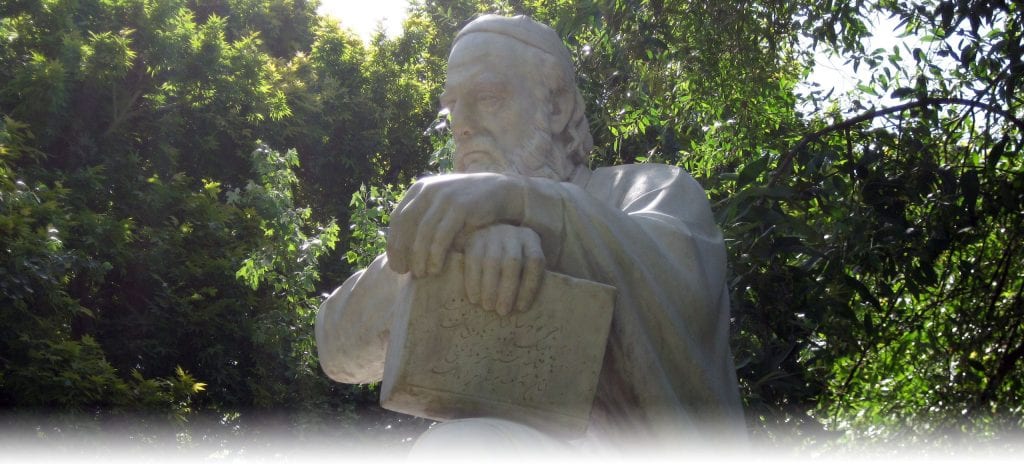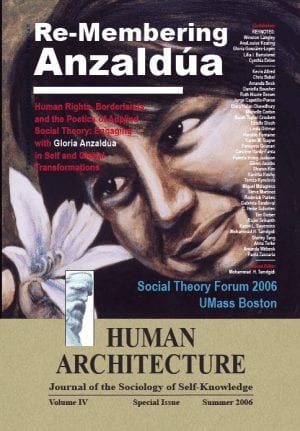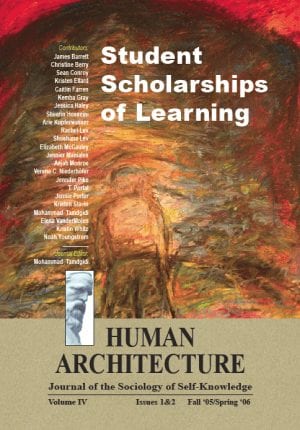Journal Article — Anzaldúa’s Sociological Imagination: Comparative Applied Insights into Utopystic and Quantal Sociology — by Mohammad H. Tamdgidi
$15.00
Anzaldúa’s liberatory social theorizing and praxis are centrally inspired by the notion of the simultaneity of self and global transformations. In this article, I explore how Anzaldúa develops and applies her approach through the writing of Borderlands/La Frontera: The New Mestiza (1987).
Description
Abstract
“Anzaldúa’s Sociological Imagination: Comparative Applied Insights into Utopystic and Quantal Sociology” is authored by Mohammad H. Tamdgidi.
“Anzaldúa’s liberatory social theorizing and praxis are centrally inspired by the notion of the simultaneity of self and global transformations. In this article, I explore how Anzaldúa develops and applies her approach through the writing of Borderlands/La Frontera: The New Mestiza (1987).
“I will begin by noting that for Anzaldúa, the transformation of self/world essentially involves the task of healing/transcending/bridging a vast array of habituated dualisms deeply ingrained in our personal and global landscapes. I will use C. Wright Mills’s notion of the sociological imagination, and Gurdjieff’s view of the human “individual” as a “three-brained being” and site of multiple selves, to frame and provide a preliminary answer to this question of what is so transformative and energizing in Anzaldúa’s work.
“I will close with the relevance of the foregoing to the new agenda advanced in my work in the frameworks of human architecture, sociology of self-knowledge, and utopystics, as methodological, theoretical, and historical-practical exercises in imaginative applied sociology-one that dialectically engages both micro and macro, quantal and Newtonian, sociological imaginations in favor of simultaneous self and global transformations.
“The creative/poetic exercise of self-knowledge and transformation in an increasingly global and world-historical context is a human right, and awareness of and training in it must be a fundamental “Gen Ed” requirement comprising any serious liberal arts education in our colleges and universities.”
Recommended Citation
Tamdgidi, Mohammad H. 2006. “Anzaldúa’s Sociological Imagination: Comparative Applied Insights into Utopystic and Quantal Sociology.” Pp. 265 in Re-Membering Anzaldúa: Human Rights, Borderlands, and the Poetics of Applied Social Theory: Engaging with Gloria Anzaldua in Self and Global Transformations (Human Architecture: Journal of the Sociology of Self-Knowledge: Volume IV, Special Issue, 2006.) Belmont, MA: Okcir Press (an imprint of Ahead Publishing House).
The various editions of Re-Membering Anzaldúa: Human Rights, Borderlands, and the Poetics of Applied Social Theory: Engaging with Gloria Anzaldua in Self and Global Transformations (proceedings of the Third Annual Social Theory Forum at UMass Boston) can be ordered from the Okcir Store and are also available for ordering from all major online bookstores worldwide (such as Amazon, Barnes&Noble, and others).




